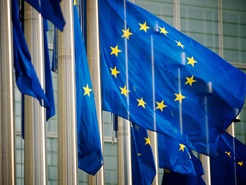The circular way forward could be the key to reducing food waste
Indications that a food crisis is imminent are clear. Fundamental changes in the global food system are required to address these challenges. This decade is a watershed moment for urgent efforts to close the loop, and companies and investors can play a pivotal role. Despite being closely connected to issues such as climate change and basic human rights, food waste has attracted comparatively less attention from companies, investors, and other stakeholders.
Recent market trends put engagement and voting front and centre for responsible investors
From a market perspective, engagement and voting on governance issues have been used as levers for influence for a long time. On the other hand, environmental and social issues were historically addressed from a values-based perspective or primarily for fact-finding purposes. Today, many responsible investors leverage corporate dialogue as a tool to influence and drive meaningful change and impact
North American Material Risk Engagement Trends: ESG Reporting Frameworks, Emission Reduction Targets and Beyond
There are many factors that rating agencies consider within its overall assessment. For example, ESG rating companies tend to look for at least three years of ESG metrics to determine company trends and long-term ESG targets, goals, and strategies to manage and reduce ESG risks at least five years ahead. Read on to learn about how Sustainalytics' Material Risk Engagement program promotes and protects long-term value by engaging with high-risk companies on financially-material ESG issues. (A North American Snapshot)
Sustainability-Linked Debt Financing: The View from Down Under
For Australia, a country whose economy is historically rooted in heavy-emitting, hard-to-abate sectors, sustainability-linked debt financing could provide the spark needed to accelerate emission reductions and transition to a low-carbon economy.
ESG Risks of Aging Pipelines for U.S. Energy Infrastructure Investors
Pipelines play a critical role in the U.S energy infrastructure transporting natural gas, crude oil, natural gas liquids, petroleum, and petrochemical products. While these pipelines play a vital role in supporting the U.S economy, investors are increasingly scrutinizing pipeline operators' long-term economic profitability and sustainability practices. A closer look into the status of pipelines reveals a particular issue that investors need to consider.
Moving the Needle: How Loans and Bonds Are Being Tied to Corporate Sustainability Performance
The tide continues to rise for the sustainable debt market, with sustainability-linked debt contributing to its steady growth. In this article we take a closer look at what’s driving market adoption of sustainability-linked debt and the principles and frameworks guiding market participants.
ESG Investors Consider Socioeconomic Impacts of COVID-19 in the Construction Industry
The construction industry can have a reputation for workforce insensitivity and is highly vulnerable to economic and social variabilities. The ESG Impacts of COVID-19 drive companies to adapt to significant challenges related to the demand for construction services. This construction sector research snapshot highlights relevant social issues that corporations face due to ripple effects from the pandemic using Sustainalytics’ ESG Risk Ratings and Controversies Research.
Delays, Questions and Confusion: Updates on the EU’s Sustainable Finance Disclosure Regulation
In this blog, we look at the delay of the level 2 regulation, some aspects of the Q&A, and the ongoing confusion and divergence around SFDR. We pay special attention to the potential impact of the Principle Adverse Impact indicators, an element of SFDR.
ESG Risk Exposure from COVID-19 Vaccine Transportation and Distribution
As mass vaccination against the coronavirus started, a key challenge has been to keep millions of doses of vaccines at the right temperature. An increase in temperature inside a truck or aircraft, by half a degree, for half an hour, would reportedly result in a 'defrosted' vaccine which has then to be discarded.
EU Taxonomy Developments and the EU’s Renewed Sustainable Finance Strategy
On July 6th, the European Commission published its Strategy for Financing the Transition to a Sustainable Economy, the successor of the EU’s Sustainable Finance Action Plan, which launched in 2018. The strategy focuses on transforming the financial system and financing transition plans, building on the 2018 Action Plan, which centered on developing the EU Taxonomy, putting in place disclosure regimes, and developing tools for the market to develop sustainable investment solutions and prevent greenwashing.
The Mutual Influence of Investors and Government
On issues from voting rights to climate change, the relationship between investors, companies, and governments has never been more dynamic. This has spurred a lively discussion about the impact and appropriate role of these actors in addressing systemic environmental and social issues. An increasingly cited view is that commitments made by businesses and investors are often superficial, and at best, can provide only incremental progress towards addressing the problems we face. Some go further to suggest that sustainable investing has done more harm than good, with the notion that these efforts have provided a false sense of progress and have delayed meaningful government action. This is a worthwhile debate, but my experience over the last eight years in the sustainable investing space has given me a very different perspective.
Using Systems Thinking to Avoid ESG Investing Blind Spots
For investors looking to enhance ESG risk management and the long-term impact of sustainability efforts, a systemic approach can help identify interventions that will most effectively mitigate the risk of negative outcomes or divert the chain of events towards a more sustainable trajectory. Typically, this involves moving from single-issue or company-specific tactics to progressively integrate system-level considerations in ESG strategies. Targeting systemic change through active ownership is one way to acknowledge and start unravelling the dynamic web of global challenges.
Sustainalytics Weighs in on EU Taxonomy’s State of Flux
On May 7th, the European Commission published draft rules on how corporates and financial institutions should report on their alignment with the EU Taxonomy. The draft rules are laid out in a very technical document and not an easy read. This might explain why certain changes with significant impact on timelines and scope of the EU Taxonomy Regulation have flown under the radar of media and investors. Some of the impacts even escaped the attention of financial market participants responding to the consultation on the rules.
What Climate Litigation Means for the Oil & Gas Industry
As the global economy looks towards recovery after being impacted by the pandemic, the oil and gas industry faces a growing wave of shareholder activism and climate litigation due to a heightened focus on an accelerated transition as an indirect impact of the pandemic – painting an increasingly bleak picture for those within the industry.
La pertinence des labels ISR dans le contexte de la SFDR et des mesures de l’AMF contre le greenwashing
Une marée de réglementations liées à l’ESG s’abat sur les investisseurs institutionnels. Avec l’introduction de SFDR et les obligations de publication mises en place par l’AMF, se pose la question d’une possible obsolescence des labels ISR dans la lutte contre le greenwashing. Un phénomène qui inquiète de plus en plus les investisseurs et les régulateurs au vue de la croissance constante du marché des fond ISR. Pendant de nombreuses années, l’industrie s’est auto-régulée en s’accordant sur une définition générale de l’investissement responsable et/ou en se tournant vers les opérateurs de labels pour créer des standards de marché.
The Why and the How of Socio-Economic Impact Reporting
As CSR has evolved, companies have become accountable to more than just their shareholders. Stakeholders of all stripes are demanding greater accountability and transparency from organizations. Socio-economic impact reporting goes beyond traditional CSR to provide quantifiable evidence of a company’s positive socio-economic impact on its stakeholders.
Royal Dutch Shell Court Order Shifts Paradigm for Corporate ESG Accountability
On 26 May 2021, the Court of The Hague orders Royal Dutch Shell (RDS) to reduce CO2 emissions to a net 45% by the end of 2030 compared to 2019 through the Group Policy of the Shell Group. The order of a national (Dutch) court demands that a global company (RDS) fulfills its obligations under the Paris Climate Agreement, although RDS was not a party in that agreement, and there is no legal equivalent in The Netherlands. What are the broader consequences of this order, also globally and for other companies and potentially also other jurisdictions?
New Draft Disclosure Rules Change Timelines and Scope of EU Taxonomy
In recent months, a lot has been said and written about the EU Taxonomy, the green classification system of economic activities that aims to drive capital flows to sustainable investments supporting the EU’s policy goals on climate and the environment. Political, corporate, and civil society lobbying reached its peak when the EU published draft rules last December, which deviated substantially from expert recommendations. However, the latest draft delegated act with rules on Taxonomy reporting published by the European Commission on May 7th has received far less attention even though some of the proposed changes affect the practical implementation timelines as well as the scope and ambition of the regulation.












.tmb-thumbnl_rc.jpg?Culture=en&sfvrsn=f9fcdf85_1)







